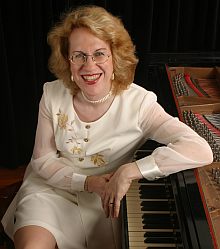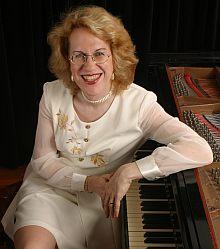
The Oakland East Bay Symphony's April 17 concert at the Paramount Theatre "pairs two composers who were revolutionaries in their time, and who changed the course of music forever," says Music Director Michael Morgan. In the case of Beethoven, it's the youthful and pathbreaking 1798 Piano Concerto No. 1 (with Sara Buechner as soloist), and from Stravinsky, it's the riotous Petrouchka ballet suite (1947 version).
In addition to new harmonies and dynamics in both works, wild rhythms are special characteristics: In the third movement of the piano concerto, syncopation reaches the point of jazz, and the adventures of Petrouchka the puppet overwhelm with arrhythmical motions on the order of Chorea sancti viti (St. Vitus' dance), just on this side of dyskinesias. Both pieces burst with colors, huge swings in mood, and waves of raw power.
Petrouchka has an important role in the history of ballet. Stravinsky composed the music for Sergei Diaghilev's Ballets Russes, which premiered it at the Théâtre du Chatelet in 1911, under Pierre Monteux — who, it may behoove young audiences to know, later became the longest-serving music director of the San Francisco Symphony, from 1935 to 1952. With choreography by Mikhail Fokine, sets by Alexandre Benois, and Vaslav Nijinsky in the title role, it's hard to get more historic. But the greatness of the occasion took decades to be appreciated, and the public had a hard time with the music, although it refrained from the outright riot that greeted The Rite of Spring two years later in the same Paris theater. (OEBS originally scheduled Rite, which requires a larger orchestra, for this program.)

It wasn't just the audience troubled by Petrouchka: The mighty Vienna Philharmonic refused to play the score, calling it "dirty music." I wonder what they would have made of Bartók's near-contemporary, far more erotic The Miraculous Mandarin back then; it did upset listeners in Cologne, and was banned in Germany. Thirty-six years after the premiere, Stravinsky reworked Petrouchka as an orchestral suite, but not to worry — he didn't "clean it up."
Not as well known as Wagner's "Tristan Chord," the "Petrouchka Chord" is interesting enough, with two major triads played together. Listen for this bitonality device heralding the appearance of the tragic hero of the piece.
This being Morgan's ever-contemporary OEBS, there is something new on the program. It's Mark Lanz Weiser's Four Scenes From the Story of Toccata and Fugue. The Southern California composer, 40, equally busy with movies and concert pieces, is a multiple ASCAP winner. His opera, Where Angels Fear to Tread, premiered at the Peabody Conservatory in Baltimore.
Of Four Scenes, Morgan says: "It's a short piece, a series of selections from a film score (tonal, evocative) and because it's for string orchestra, it reminds you of that other great string orchestra film score, Psycho — but without the insanity."
The film in question is Neal Thibedeau's 2007 thriller The Story of Tocatta and Fugue, whose main characters are named Gil Toccata and Andi Fugue, played by Graham Sibley and Annika Marks. ("Tocatta" in the film becomes "Toccata" in the concert program because, as the composer admitted to us: "I didn’t want people to think I don’t know how to spell that Italian word.")
To enhance further the concert's aural pomp and grand circumstances, Morgan opens the evening with Rimsky-Korsakov’s 1888 Russian Easter Overture. Note how the celebratory theme in this piece will later resonate in Petrouchka's carnival scenes. Mother Russia will be well served.
An hour before the concert starts (as Russian Orthodox Obikhod canticles, mixed with pagan rhythms, ring out), John Kendall Bailey presents a preconcert lecture.

